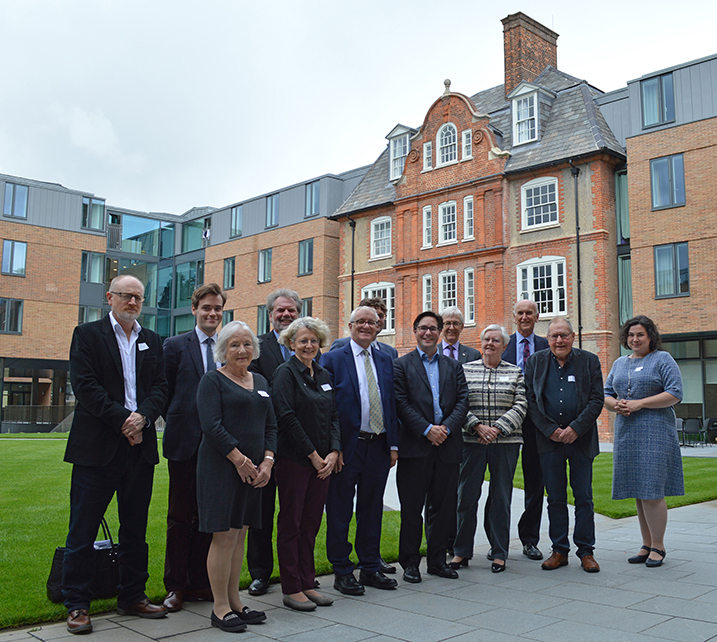As part of its 150th anniversary celebrations, the College hosted a symposium on 25 September 2019, organised by Dr Ian Archer and Professor Angus Hawkins.

The Symposium speakers in the quad of The H B Allen Centre
Its aim was to look at the forces and personalities behind the foundation of the College. Part of that story is to be found in the controversial religious politics of the period; part of it in the question of the relationship of the wider University to new social and intellectual currents. Raising the money involved the mobilisation of some significant big hitters like the Gibbs family, but it also required novel fund raising tactics. In choosing William Butterfield as an architect and in adopting brick as the key building material, the College made a statement of boldness of difference. Far from Keble being a reactionary project, the first Warden, Edward Talbot and his wife Lavinia played a key role the movement from which Lady Margaret Hall emerged.
Speakers at the symposium looked at the College’s foundation and early years from a variety of perspectives. Topics included the relationship of the College to the Oxford Movement, the memorialisation of John Keble, the place of the foundation in contemporary political debates, the challenges of fund raising, the architecture of William Butterfield, Lavinia Talbot and Victorian womanhood, the Talbots and the cause of women’s education, and the Hall restoration project as a case study in archives and heritage.
While all the speakers drew upon original research in their talks, the aim was to speak to a wider audience, and the talks are all available for viewing in this section of the website.
